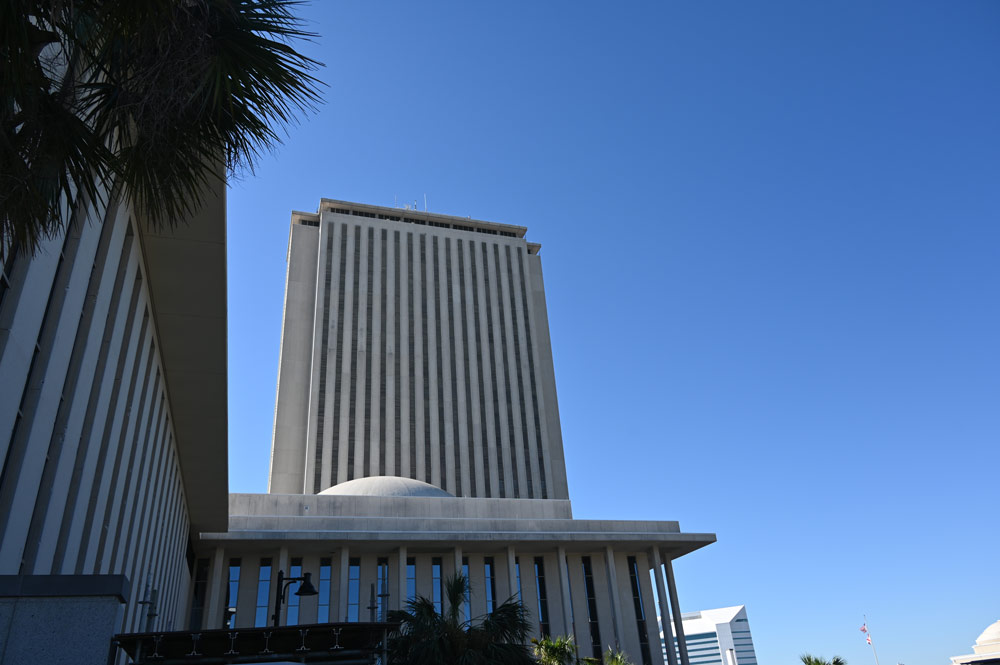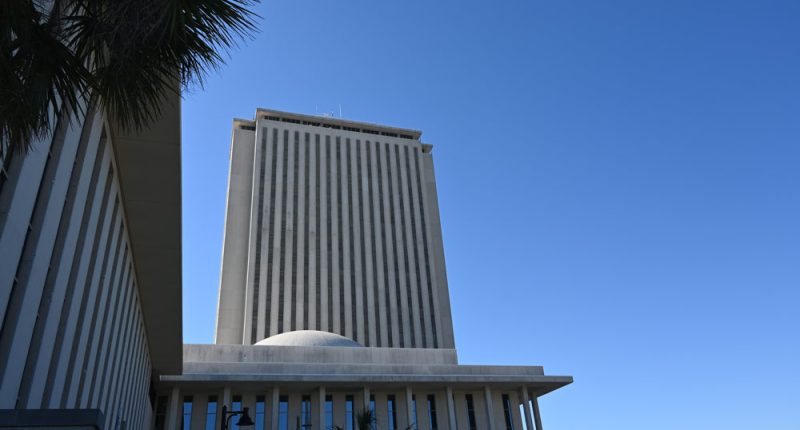
With the Senate and House unable to reach agreement on tax cuts and spending, lawmakers will not finish negotiations on a new state budget in time to end the legislative session as scheduled next week.
Senate President Ben Albritton, R-Wauchula, and House Speaker Daniel Perez, R-Miami, told their members Thursday afternoon that leaders have not reached agreement on key first steps needed to start formal budget negotiations. That includes what are known as “allocations,” which are overall amounts of money that go to various areas of the budget, such as education and health care.
To end the session as scheduled May 2, lawmakers would need to finish drawing up the budget by Tuesday. That is because of a constitutionally required 72-hour “cooling off” period before the spending plan could be approved.
“I am disappointed to report we have not yet reached an agreement on allocations with the House,” Albritton said.
The House and Senate passed budget proposals this month with a more than $4 billion gap. The House’s proposal totaled $112.95 billion, while the Senate’s weighed in at $117.36 billion.
Perez gave a blistering speech Thursday, saying the Legislature in recent years has been “addicted to spending” and contending the Senate has not been willing to move closer to the House’s leaner budget proposal.
“The Senate’s expectation seems to be that the House should adopt the Senate budget with only slight modifications,” Perez said. “That position is not only unacceptable but it is patronizing.”
Albritton and Perez told lawmakers they can go home this weekend because the formal budget conference would not begin. It was not immediately clear whether leaders would extend the session after May 2 or bring lawmakers back later to finish the budget.
“We will not be moved by threats or time or ultimatums,” Perez said of the House.
As leaders have worked behind the scenes to try to kick-start the budget conference process, a major difference has centered on tax cuts.
The House has proposed a tax package (HB 7033) totaling about $5 billion, with the cuts largely stemming from a plan to permanently reduce the state’s sales-tax rate from 6 percent to 5.25 percent.
The Senate proposed a $1.83 billion tax-cut package (SB 7034) that includes eliminating sales taxes on clothing and shoes that cost $75 or less. It also would provide a one-time credit on annual vehicle-registration fees and offer a series of sales-tax “holidays,” including a new one that would last more than three months on hunting equipment.
Gov. Ron DeSantis, meanwhile, has pushed for cutting property taxes.
Albritton said the Senate on Wednesday offered to the House $1.3 billion in recurring tax cuts, mostly through the sales-tax cut for clothes and shoes, and $1.5 billion in one-time cuts. He said the Senate is concerned about making deeper recurring cuts because of potential shortfalls in future years.
“Cutting taxes now does little good if they have to be raised down the road,” Albritton said. “Cutting waste and inefficiency plays a serious, important role in responsible spending at all levels of government.”
But Perez said the House concluded that the state should cut taxes to curb spending.
“The best way to solve our spending problem is to remove the temptation to spend,” Perez said.
Albritton indicated the Senate had agreed to a House proposal to cut a tax on commercial leases from 2 percent to 1 percent.
“I understand their perspective and applaud their resolve to pursue better government, and I have immense respect for the speaker and his entire team,” Albritton said. “At the end of the day, I’m just uncomfortable with a proposal I believe will likely lead to shortfalls, if not substantial shortfalls, in the out-years.”
A panel of economists known as the Revenue Estimating Conference warned lawmakers in March that “uncertainty exists” in economic models.
The panel raised general-revenue projections by about $1.3 billion for the current fiscal year and next year. But in an executive summary of its report, the panel pointed to “weaker” state and national economic variables and said the “forecasting environment is considerably less stable over the short run than it was in the summer. Further economic uncertainty exists from this point forward.”
Lawmakers must pass a budget before the July 1 start of the 2025-2026 fiscal year. Also, DeSantis has line-item veto power over the budget.
–Jim Saunders, News Service of Florida










